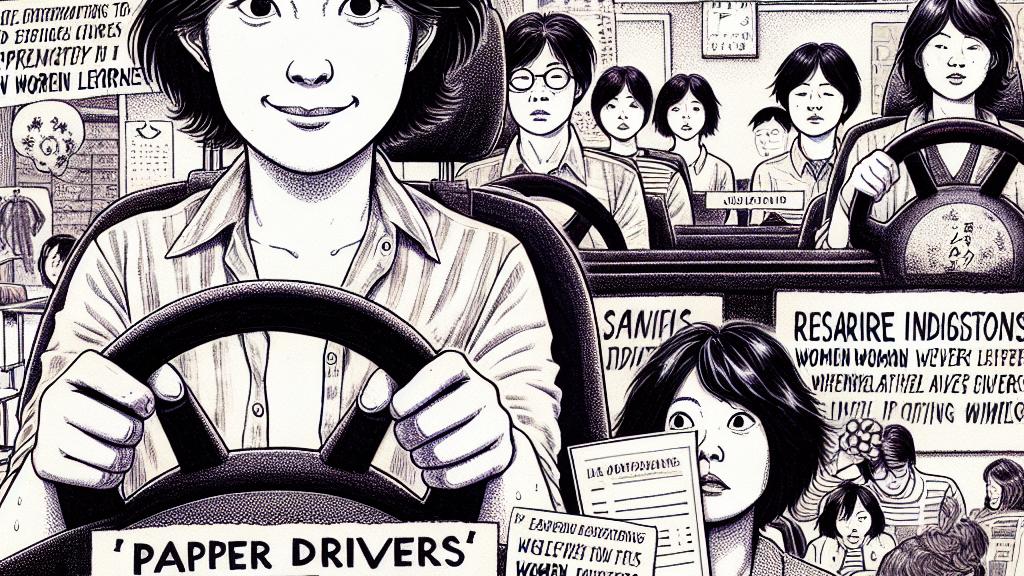A Manga Artist's Revelation on Driving and Gender Perception
Overview
- A 45-year-old manga artist embarks on a transformative journey as she obtains her driver's license for the very first time.
- Through her eye-opening experiences, she confronts and unravels societal biases that unfairly categorize women as less skilled drivers than men.
- The narrative creatively likens the act of driving to the mindset of a 'samurai,' emphasizing the essential qualities of confidence, decisiveness, and control.

Understanding Gendered Driving Stereotypes
This evocative story unfolds in Japan, where rigid stereotypes surrounding driving and gender often coexist with startling contradictions. When the manga artist, at 45 years of age, finally resolves to obtain her driver's license, she dives into a world brimming with preconceived notions. It becomes evident through her experiences that many driving schools cater specifically to women, often inferring that they inherently require additional support. For example, it's not uncommon to find schools offering 'ladies' courses' that provide free retests—a subtle acknowledgment of the belief that women are less capable. Conversations with her friends reveal a shocking statistic: countless women, despite holding licenses, identify as 'paper drivers,' only venturing onto the road occasionally or, in some cases, never at all. Such insights vividly illustrate how these stereotypes breed self-doubt and anxiety among women eager to drive, creating a detrimental cycle that stifles agency and reinforces these outdated beliefs.
The Samurai Mindset in Driving
As she grapples with her newfound driving skills, the artist draws an intriguing parallel between mastering a vehicle and embracing a 'samurai' mindset. Driving, she realizes, requires not just practical skills but also a sense of control and confidence akin to that of a samurai wielding a sword. Each turn of the steering wheel, each glance in the rearview mirror transforms into an act of deliberate precision—holding not just responsibility for herself, but also for those around her. For instance, navigating a busy intersection can feel like engaging in a dance of awareness, where every driver becomes a partner performing a choreographed routine of movements governed by mutual respect and caution. However, she notes a striking observation: many women find themselves battling performance anxiety, lacking the decisive 'samurai' mentality when they drive. This recognition raises an essential question: how do these ingrained stereotypes shape not only women's confidence behind the wheel but their overall self-perception? By intertwining personal reflection with broader societal themes, the artist shines a light on the urgent need for change.
Conclusion: A Call for Change
In conclusion, this manga artist’s journey serves as both a personal narrative and a compelling appeal for society to reconsider its entrenched views on gender and driving. Her experiences advocate for inclusive systems that empower all drivers, regardless of gender, to embrace their abilities with confidence. By challenging the outdated stereotypes that depict women as less competent behind the wheel, we can foster a culture that encourages both men and women to develop their driving skills freely. Just as samurai honor their craft with a blend of discipline, courage, and respect, nurturing self-belief and resilience in driving can lead everyone to command their own journeys. Let us strive together for a future where every driver—male or female—navigates the streets with assurance, grace, and skill, shattering the barriers that once held them back.

Loading...